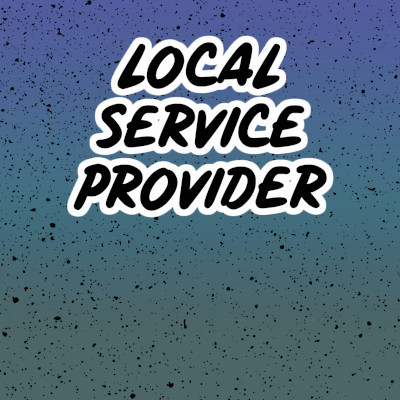Inner Exploration

Self - love
Healthy or wounded?
Men-in-Crisis from broken families need to be heard.
We connect men to local programs and resources to manage this journey to emotional health.
"Being self-aware" in relationships means knowing how to self - love / self care and be more in touch with your own feelings and know how they might affect your actions.
Trying to understand why you're feeling happy or hurt and being open to the possibility of change.
Being emotionally healthy means you're aware of your feelings and can communicate them, which helps build stronger connections.
When emotionally wounded, it means you might not fully understand or express your emotions, which can make relationships harder.
Self-awareness is a valuable skill for better, healthier relationships.
Handouts: Home Improvement: Men in Relationship Jan 2024
Key Points: AI summary
Negative Self-Talk Examples:
"How dare she question me."
"She never listens to me, so I won't listen to her."
"I was just joking, she is just too sensitive."
"She has no right to tell me what to do."
"I'm not really worthy of her."
"She doesn't really care about me anymore."
"I have to protect myself."
"I will pay her back for how she treats me."
"She's trying to embarrass me."
"If I don't stand up to her, she will take advantage of me."
Positive Self-Talk Examples:
"I can feel my anxiety/stress levels building up. I better take some time before I respond."
"I don't need to control her. I need to control myself."
"Most things we argue about don't need to escalate into a fight. It's not worth it."
"I'm going to try to respond rather than react as I usually have done."
"I'm feeling threatened. I can talk myself down and keep a cool head."
"She can act the way she wants to, not the way I expect her to act."
"I'm getting angry. I need to breathe and stay calm."
"I'm going to handle the criticism. After all, I know I'm not perfect."
Homework:
Write down three examples of negative self-talk you notice yourself using.
Then write what would have been a more productive positive self-talk.
Our Thoughts and Beliefs Change How We Respond:
Negative Self-Talk:
Increases feelings of hurt, anxiety, and fear.
May escalate to anger and rage.
Can make the situation worse.
May feel good in the moment but is unhelpful in the long term.
Gains a sense of power and control over the other person.
You may say things you regret later.
Reacts to the situation.
Creates chaos.
Positive Self-Talk:
Helps maintain control of feelings.
Prevents anger from taking over.
May change the outcome of a situation.
Feels better in the moment and in the long run.
Gains a sense of controlling oneself.
Prevents saying or doing things you later regret.
Responds to the situation.
Creates calm.
The whole idea of becoming more self aware is actually a process of self - healing.
A process of recognizing your self-worth and moving forward.
Learning how to love yourself, love others and be loved by others in return.
Learning to process stuff better.
Learning to be vulnerabe with our flaws
Sharing your big wins and sharing your losses and struggles
Be an individual with your own identity and deeply connected in your community
Book: Why has nobody told me this before? By Dr Julie Smith 2022 On Self -doubt
20. You are not your mistakes - Self Care Topic
Summary:
Most self-doubt is linked to our relationship with failure.
How other people respond to your failure does not say anything about your own personality or worthiness.
The sting of failure can drive you to numb or block emotion. So if you don't initially notice the feeling, you can notice the blocking behavior.
Be your own coach and turn failure into a learning experience as you keep moving forward in line with what matters to you.
The emotional response to failure can be overwhelming, so take your time.
21. Being enough Self Care Topic
Summary:
There is a misconception that self-acceptance will cause laziness, complacency and lack of derive.
In reality the research shows us that those who develop self-acceptance are less likely to fear failure, and more likely to try again when they do fail.
Self-acceptance is not the same as passively accepting defeat.
Self-compassion often involves taking the more difficult road that is in your best interest.
22. Make anxiety disappear! Go To: Authors Opinion Fear
Extract from: Owning our Struggles by Minaa B. 2023
Self Trust
One of the ultimate gifts we can give ourselves is trusting that we know what we need.
This journey of healing will be long and will come with challenges and when you face obstacles, its ok to lean into your own wisdom and trust that you know what you need to feel safe, secure and move forward.
Everywhere you turn there is a voice that will tell you how to live, but one of the best ways to know you are healing is when you finally learn to trust yourself and your ability to make choices for your betterment, instead of second guessing yourself and constantly requiring approval and validation from others on whether your needs matter or how you should live your life.
-Give yourself permission to be and do what feels right for you.
-Owning your struggles is the bridge to owning your healing.
Dysfunctional families can manifest as: Parents or caregivers who have addictions (drugs, alcohol, gambling, hoarding etc) that impact the well being, safety, and stability of the family unit.
-Children witnessing abuse (physical, verbal, emotional) between caregivers and other family members.
-Children being neglected physically (lack of food, improper clothing, unstable housing, financial instability that impacts the caregivers ability to provide the necessities for a child's development) and emotional (emotional withdrawal, being ridiculed and called names, poor educational development)
-Parents parentifying their children: Assigning eldest children with tasks of being head of household (especially after death of a parent or a separation / divorce) caring for their younger siblings, having to engage in adultlike responsibilities to care for other members, not allowing teenage child to be autonomous and independent (move out, move to another state or college, get a job) because they have to care for their siblings or caretaker.
-Enmeshment: Parents who aim to live vicariously through their children, are overbearing, and don't respect their child's boundaries; who force their children to do the things that make the parent happy and not the child; and who have an authoritarian role that forces the child to be compliant and have no sense of self or not able to form their own identity (can manifest as forcing religious beliefs, politics, and traditions onto children.
Handouts: Home Improvement: Men in Relationship Jan 2024
Key Points: AI summary
Negative Self-Love Examples
How dare she question me.
She never listens to me, so I won't listen to her.
I was just joking, she's just too sensitive.
She has no right to tell me what to do.
I'm not really worthy of her.
She doesn't really care about me anymore.
I have to protect myself.
I will pay her back for how she treats me.
She's trying to embarrass me.
If I don't stand up to her, she will take advantage of me.
Positive Self-Love Examples
I can feel my anxiety/stress levels building up. I better take some time before I respond.
I don't need to control her. I need to control myself.
Most things we argue about don't need to escalate into a fight. It's not worth it.
I’m going to try to respond rather than react as I usually have done.
I'm feeling threatened. I can talk myself down and keep a cool head.
She can act the way she wants to, not the way I expect her to act.
I'm getting angry. I need to breathe and stay calm.
I'm going to handle the criticism. After all, I know I'm not perfect.
Homework:
Write down three examples of negative self-talk you notice yourself using and then write what would have been a more productive positive self-talk / self love.
Our Thoughts and Beliefs Change How We Choose to Respond
Negative Self-Love:
Increases feelings of hurt, anxiety, and fear.
May escalate to anger and rage.
Can make the situation worse.
May feel good at the moment but is unhelpful in the long term.
Gain a sense of power and control over the other person.
You may say things you regret later.
React to the situation.
Creates chaos.
Positive Self-Love:
Able to maintain control of feelings.
Anger doesn't take over.
May change the outcome of a situation.
Feel better in the moment and better in the long run.
Gain a sense of controlling oneself.
You don't say or do things you later regret.
Respond to the situation.
Creates calm.
Handouts: Home Improvement: Men in Relationship Jan 2024
Key Points: AI summary
Feelings and Emotions
Emotions or feelings are complex reactions involving a person's state of mind and their environment.
Negative Emotions:
Apathy, Grief, Fear, Hatred, Shame, Blame, Regret, Resentment, Anger, Hostility, Guilt, Despair
Positive Emotions:
Joy, Interest, Enthusiasm, Laughter, Empathy, Action, Curiosity, Anticipation, Pride, Desire, Euphoria, Hope
Key Points:
People often feel more than one emotion at a time, with multiple causes for their emotional state.
Emotions influence behaviors and actions.
Emotions control our thinking, behavior, and actions.
It’s important to cope with emotions and express them positively to align our actions with how we wish to behave.
This involves thinking before responding rather than reacting impulsively.
Steps to Handle Emotions:
Recognize Your Feelings: Name them and regain power within yourself.
Talk to Someone: Share your feelings with a group, counselor, or trusted person.
Communicate with a Partner: Learn to express your feelings to your partner if you have one.
Identify Underlying Emotions: Recognize emotions like hurt, embarrassment, or jealousy that might be causing anxiety or anger.
Engage in Physical Activity: Exercise can help manage emotions.
Practice Gratitude: Think of things you can be thankful for.
Practice Self-Care and Compassion: Take care of yourself and be kind to yourself.
Disclaimer:
This website is for information only. It represents the unproven opinions / thoughts of various authors or collaborating partners.
This website and its content is not intended to serve as a substitute for professional medical or counselling advice.
PeaceBuilders Network and/ or associate organizations specifically disclaim any and all liability contained in or linked to this website.
A health-care professional should be consulted regarding your specific medical condition.
If you have a medical, mental health or other emergency, then reach out to the local emergency services helpline or hospital.
Copyright:
The contents of this website is subject to licencing and copyright. All rights reserved.
All webpages and all artwork has been minted as NFTs for exclusive use by PeaceBuilders Network and/ or their representatives.
No part of this website or content may be used in any manner whatsoever without the express written permission of PeaceBuilders Network and/ or their representatives, except in the case of brief quotations embodied in articles or reviews.
Updated: November 2023
Related Topics
Find Other Topics
General Information
Trending TopicsFind a category...
PeaceBuilding@home Connecting Ready or Not? Our Struggles Coping Self-Reflection 7 Principles of living Conflict Life Transitions Mental Wellness Development Inner Exploration Personal Growth Community Taking Action Local PeaceBuilders Programs PeaceBuilders Network PeaceBuilders Network Book Resources General Book Resources ContactFind a topic...
Parenting & Co-parenting Love Site information Why PeaceBuilders? Accountability Collective wisdom Communication Criticism Death Defensiveness Feelings Framing Friends Jealousy Life {love} bites Meditation Re-invention Relationships Secrets & lies Self-care tools The foundation Your story Local PeaceBuilders Alone Anger management Boundaries Contempt Denial Divorce Failure Friends help friends Inter-dependence Kindness Life changes Life's Journey Loneliness PeaceBuilder David Respect Self-determination Smile More Triggers Vulnerability Bargaining Change Step 1 Compassion Conflict management Courage Depression Difficult decisions Emotional Pain Gratitude Habits Hubris Imagining Immigration Mediation New Beginnings PeaceBuilder Sam Real men do cry Relaxation time Spirituality Stonewalling Stuck Abuse / hurting Acceptance Addictions Change Step 2 Community Control Culture Curiosity Disappointment Exploring Fear Honesty / trust Local Dads Men's Health Matters Pride Responsibility Separation Success Treasures Beliefs Brainstorming Change Step 3 Grief Guilt vs Shame Happiness Hope Humility Identity Mastering Plan ahead Power Relationship Pies Resilience Self - love Self-management Storytelling Team Activity AI Belonging Change Step 4 Emotional health Forgiveness Goals Healing Justice vs Truth Life's Purpose Listening Motivation Networking Services Next steps Normalizing Older adults Our Art Collection Playing Regret Sex & Dating (again) Values & strengths Empathy Shock Stress / Anxiety Volunteering
Connect Locally
Featured Services

Wellness Together Canada
PeaceBuildersNetwork.org hopes to connect all our local communities, programs and services.
Click here to log in to the dashboard.
Log InIf you are a service manager and would like to register and manage your service, click here to create a membership account.
Create Account






